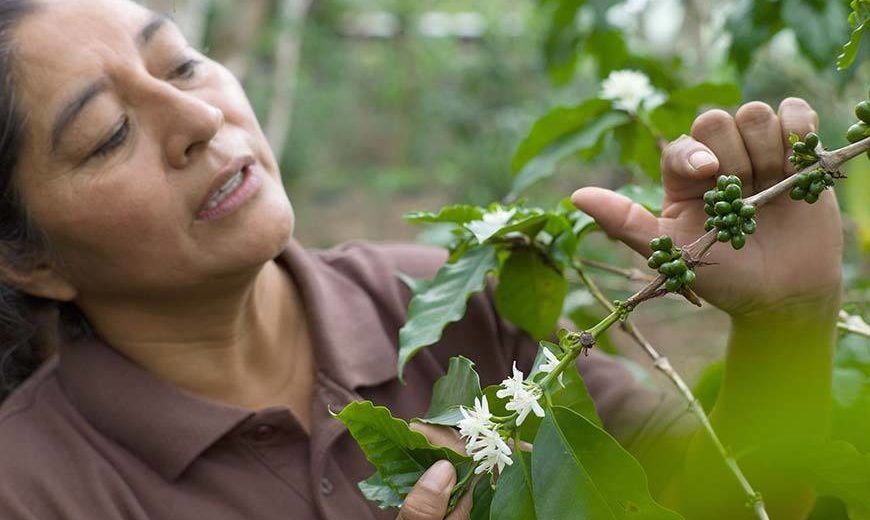About the standards
The Fairtrade Standards are designed to tackle poverty and empower producers in the poorest countries in the world. The standards apply to both producers and traders.

Image © Santiago Engelhardt
The Fairtrade Standards are the backbone of our approach. They include a range of economic, environmental and social criteria that must be met by producers and traders in order to acquire or retain Fairtrade certification.
Overview of the standards
Economic criteria include the Fairtrade Minimum Price which aims to provide producers with a safety net against falling prices and allow long-term planning, along with a fixed Fairtrade Premium that provides farmers and workers with additional money to invest in improving the quality of their businesses and communities.
Fairtrade also emphasizes long-term trading partnerships and requires buyers to provide pre-financing to producers who request it, opening access to capital to help stabilize their operations.
Environmental criteria emphasize ecologically and agriculturally sound practices, including responsible water and waste management, preserving biodiversity and soil fertility, and minimal use of pesticides and agrochemicals. Fairtrade prohibits the use of several hazardous materials and all genetically modified organisms (GMOs).
Fairtrade does not require organic certification, but organic production is promoted and rewarded by higher Fairtrade Minimum Prices for organically grown products.
Social criteria for small-scale producers include requirements on democratic self-organization (typically in cooperatives), participatory decision-making, transparency, and non-discrimination (including gender equity).
In plantation-type settings where hired labour is the norm, our standards require companies to operate with non-discriminatory employment practices, pay rates equal to or higher than the legal or regional minimum wages, freedom of association and collective bargaining rights for the workforce, safeguards for worker safety and health, and facilities to allow workers to manage the Fairtrade Premium.
Forced labour and child labour are prohibited under the Fairtrade Standards.
Products carrying the FAIRTRADE Marks have been certified against the criteria in the Fairtrade Standards. If the criteria are not met, a producer organization can face suspension until remedial action can be undertaken and verified, or ultimately be decertified.
Fairtrade also has a Trader Standard aimed at ensuring that businesses buying products from Fairtrade producers treat these suppliers fairly.